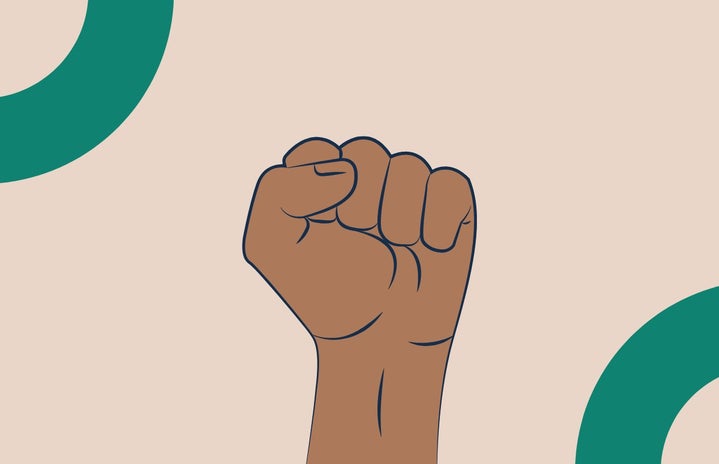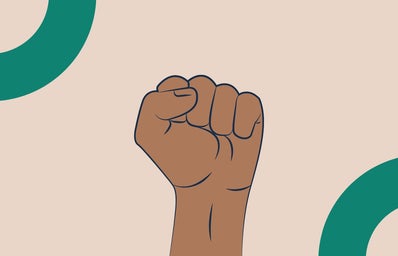2020 SUCKS. However, something positive that has come out of it is an increased consciousness of systemic racism in the United States.* There are people taking to the streets in cities across all 50 states, crying out to lawmakers and city officials to make changes regarding policing, the justice system, and the overall treatment of Black people in America.
But if we take a step back, it’s important to ask ourselves, how did we get here? How has the United States become so divided over the category of race? Where did the category of race even originate in the United States?
In my history class, “The Old South and the World”, taught by the brilliant and interesting Dr. Aurélia Aubert, we have spent lots of time grappling with the answer to that last question.
How and when did the concept of race begin to divide our nation?
Believe it or not, it all started with Native American slavery. Here’s how:
(Before I go on, I do want to mention that I am no expert in the fields of Black studies or American history. I am a white, middle-class college student studying history and education who has learned a piece of interesting historical perspective that I wanted to share. So here goes the sharing!)
Native American Slavery
I didn’t know Native American slavery occurred before taking this class. This topic is a huge gap in US History that needs to be filled. Modern historians argue that historians of the past erased Native American history because they were deemed “too wild” and “too weak” to be good slaves. Here is some info to try and fill in that gap.
-
Native Americans were the first group to be enslaved by the British and other Europeans upon the colonists’ arrival in the American South.
-
Throughout the 1500s and 1600s, Native American slaves were traded for goods in the colonies of Virginia and Carolina (Carolina had not yet been split into North and South at this time).
-
Native Americans taught slave owners how to grow tobacco which made the colonies profitable when they otherwise would have likely failed.
So basically, we owe the success of the American colonies to the labor of Native American slaves whom the United States later tried to eradicate and erase from history. Nope, nothing wrong there at alllllll.

African Slavery
-
The first African slaves in the British colonies of North America arrived in Virginia in 1619, although this was not the first Black presence in the United States.
-
Before being enslaved in North America, Africans did not view their identity as “Black” or as “African.” The identity of Africans belonged to their ethnicity or tribal group. The concept of race was not created until the Europeans got involved (shocker).
Bacon’s Rebellion (Jamestown, Virginia 1676)
-
Virginia Governor William Berkeley was making lots of money off the Native American slave trade since the trade was the quickest way to get rich in the colonies. He only granted licenses to enslave Native Americans to himself and his rich, white friends, keeping the wealth in the hands of the elite.
-
Nathaniel Bacon (I would die if I had that last name lol) was upset that commoners like himself could not climb up the social and economic ladder without the slave trading licenses, so he organized a rebellion.
-
Bacon’s army was made up of eggs and toast… lol I’m kidding, I hope that was funny and not incredibly stupid.
-
Okay, for real. Bacon’s army was made up of poor white indentured servants and poor former Black slaves. These two groups were united by class against the elites.
-
The rebellion was successful. Berkeley fled all the way back to England (geez it must have been bad) and the rebels went on a spree and enslaved many Native Americans.
-
Berkeley eventually returned and wanted to make sure a rebellion like that never… happened… again *dun dun DUNNNNN* He realized that this group of rebels was united by class so he needed a way to divide them to prevent future rebellions.
-
Berkeley and other elites decide the only way to break up this group was to divide them among racial lines. They began granting social privileges to white workers that they did not give to Black workers. One of those advantages was that Black slaves would be left with the majority of the hard labor.
Black workers now came to be associated with the worst of the worst labor. Because white workers now had advantages over Black slaves, skin color and race became a marker of social status. This is how the concept of race was born in North America.
And it all started with the Native American slave trade. Historians that discount or erase the importance of Native Americans are missing the huge impact their narrative had on the formation of the United States as we know it today. This history needs to be taught on par with African slavery in America to realize the full impact of that Native Americans- and slavery in general- had on the United States of America.
If you’re a nerd and would like to read more about this scholarship, here are the readings and historians that informed this article and came up with these ideas:
F. Todd Smith, Louisiana and the Gulf South Frontier: 1500-1821 (book)
Edmund Morgan, American Slavery, American Freedom (book)
Hayley Negrin, Fugitive Lands: Indigenous Slavery and Gender in the Early American South (virtual talk)
*This consciousness is rooted in the loss of human life at the hands of police which is horrendous and not a positive experience in the slightest.


